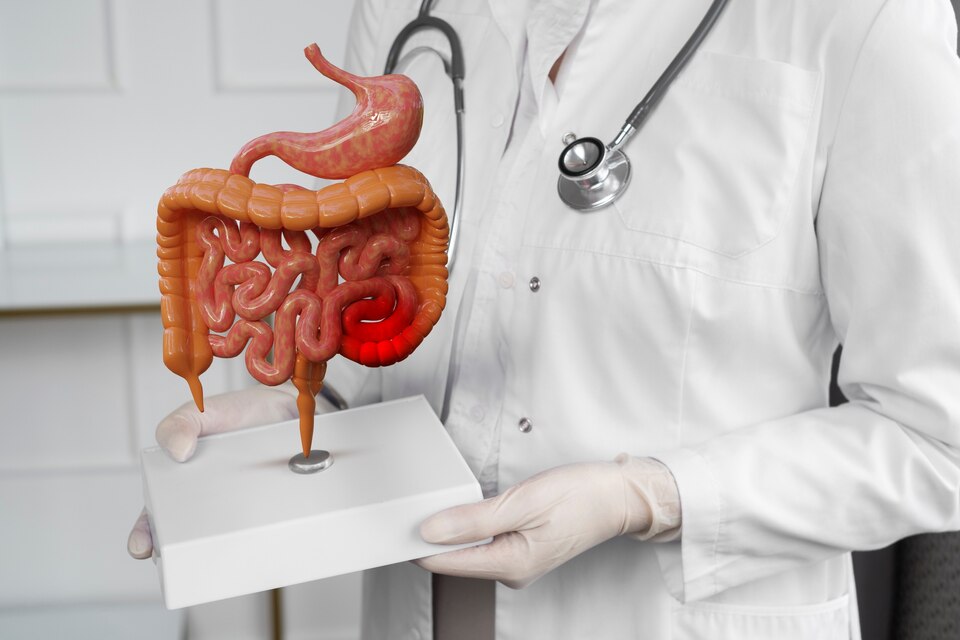Recurrent mouth sores, encompassing canker sores, cold sores, or even gum inflammation, can be a source of significant discomfort. Beyond the immediate irritation, these lesions might serve as a more profound signal – a potential window into the health of your gastrointestinal (GI) system. The following exploration delves into the intriguing link between oral health and digestive well-being, revealing how seemingly minor mouth sores can be early signs of underlying GI issues.
Why Might Mouth Sores Be a Sign of GI Trouble?

The connection between your mouth and your gut may seem surprising, but they’re actually two sides of the same digestive coin. Your mouth is the gateway to your digestive system, and the health of one can significantly impact the other. There are several reasons why mouth sores might be a clue to underlying GI problems:
- Nutrient Deficiencies: Shortfalls in essential vitamins and minerals, particularly B12, iron, and zinc, can contribute to mouth sores. These deficiencies may also indicate malabsorption, a condition linked to GI problems like Crohn’s disease or celiac disease, where nutrient uptake from food is impaired.
- Inflammation: Chronic inflammation in the gut, a hallmark of conditions like inflammatory bowel disease (IBD), can manifest in various ways, including mouth sores. The inflammatory response triggered by these conditions can affect the tissues in your mouth, leading to the formation of sores.
- Immune System Response: GI issues can sometimes lead to a weakened immune system. A compromised immune system makes you more susceptible to infections, including those that can cause mouth sores, such as the herpes simplex virus (cold sores) or bacterial infections (canker sores).
- Medications: Certain medications used to treat GI problems, like antibiotics or some chemotherapy drugs, can have mouth sores as a side effect.
Beyond Mouth Sores: Other Warning Signs
While mouth sores can be a sign of GI trouble, they’re not the only symptom to watch out for. Here are some other red flags:
Changes in Bowel Habits: Diarrhea, constipation, or a change in stool consistency can indicate underlying GI problems.
Stomach Pain & Bloating: Frequent abdominal pain, cramping, or bloating can be signs of issues like irritable bowel syndrome (IBS) or inflammatory bowel disease.
Heartburn & Acid Reflux: Persistent heartburn and acid reflux can be a symptom of GERD (Gastroesophageal Reflux Disease) which can sometimes irritate the esophagus and lead to mouth sores.
Nausea & Vomiting: If you’re frequently experiencing nausea or vomiting, it’s important to consult your doctor as it could be a sign of various GI issues.
Soothing the Sores and the Gut: Treatment Options
The treatment will depend on the root cause of the problem. However, some general tips can help manage both mouth sores and GI discomfort:
- Dietary Changes: A healthy diet rich in fruits, vegetables, and whole grains can help ensure you’re getting the nutrients your body needs for optimal gut and oral health. Limiting processed foods, sugary drinks, and excessive alcohol may also be beneficial.
- Hydration: Drinking plenty of water helps keep your digestive system functioning smoothly and promotes overall health, including your mouth.
- Oral Hygiene: Maintaining good oral hygiene practices like brushing twice daily and flossing regularly can help prevent mouth infections and promote healing of existing sores.
- Over-the-Counter Relief: Over-the-counter pain relievers can help manage discomfort associated with mouth sores. Some topical ointments may also help alleviate soreness.
- GI-Specific Treatment: Based on your diagnosis, your doctor might recommend medications or therapies to address the underlying GI condition, which can in turn improve your oral health.
If you’re experiencing mouth sores and suspect they might be linked to an underlying GI issue, it’s crucial to consult your doctor for a proper diagnosis.
Additional Tips
Seek immediate medical attention if your mouth sores:
- are large, unusually painful, or persist for more than a few weeks.
- are accompanied by a fever.
- cause significant bleeding or difficulty swallowing.
In conclusion, mouth sores, while seemingly insignificant, can sometimes be a valuable clue pointing towards potential problems brewing in your gut. If you experience persistent mouth sores alongside other digestive issues, don’t hesitate to consult your doctor. Early diagnosis and treatment of underlying GI problems can not only improve your gut health but also prevent future mouth sores and ensure a happy smile, both inside and out. Remember, a healthy mouth is often a reflection of a healthy gut!

